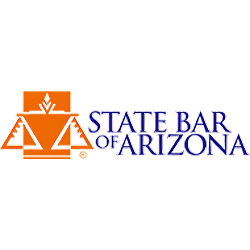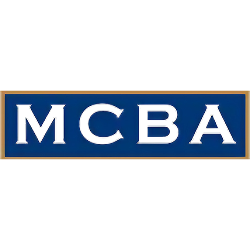Some portions of the AFI are easy to figure out, while other portions can be somewhat confusing. The following are answers to common questions that we often receive. If you have an attorney, the attorney or his/her staff should be able to help you with these forms.
- Do I file the AFI with the Court? Yes, you should file the AFI and provide a copy to the other party (or his / her attorney if represented). During trial or other evidentiary hearing, you will also want to have your AFI admitted into evidence.
- The AFI requires that I provide my last three tax returns. What if I do not have copies? You can still file the AFI and note that you do not have possession of tax return copies. In the meantime, you can ask the other party, your CPA or the IRS and Arizona Department of Revenue for a copy of your returns.
- The AFI requires that I provide my last three paystubs. What if I do not work? You only have to provide copies if you work and receive paystubs. If you do not receive paystubs merely note “N/A” or “not applicable” on the AFI. If you receive compensation other than by paystubs, you should attach a printout or other documentation of such income if available (i.e., such as 1099 forms). If you receive compensation from more than one source you should attach documentation showing your income from each source.
- What if I do not know the information requested? If you do not have the information to fill out some of the questions on the AFI just state “unknown”. However, if you have access to the information (such as bank statements etc.) you will want to obtain the information requested and fill out the AFI to the best of your ability. The AFI asks for monthly averages (i.e. the total of yearly expenses divided by 12). You can amend or supplement your AFI if you obtain additional or different information later. You may be precluded from making certain claims or defenses if you leave a lot of the form blank but then try to testify later regarding specific information that should have been included in the AFI. You can start with estimates if you want and then submit subsequent AFI forms as you obtain further information or make further calculations.
- What if I have questions regarding my family law case or how to fill out the AFI? If we represent you, we can answer your questions quickly and efficiently. Bishop, Del Vecchio & Beeks Law Office, P.C. also provides consult-based services to parties that represent themselves. You can seek our services on a pay-as-you go basis without having to pay a retainer. In some cases, it may only take a few minutes for us to answer your questions.
Resolution Management Conference / Proposed Resolution Statement
In almost all litigated family law or divorce cases the Court will require the parties to each file a Proposed Resolution Statement and will schedule a Resolution Management Conference (also called an “RMC”).
An RMC is a procedural hearing for the Court to learn what is happening in the case, to see if there are various things that can be done to keep the case moving forward, and to explore whether some or all the issues can be settled (including through mediation or a settlement conference). In many cases, the Court will schedule a trial date during the RMC. The RMC itself is not a trial and the Court cannot take evidence or issue orders during this hearing unless the parties agree otherwise.
Prior to the RMC, the Court will generally require the parties to each fill out a Proposed Resolution Statement. You only need to fill out the sections that apply to your case (write “N/A” if the section does not apply). The form is supposed to merely provide your position as to specific issues (without argument as to the reasons for your positions). Follow this link to access the Proposed Resolution Statement form.
Disclosure and Discovery
In all family law cases there are disclosure requirements (unless the parties each expressly waive them by agreement). Rule 49 of the Arizona Rules of Family Law Procedure (“ARFLP”) set forth the disclosure requirements as applied to the specific issues. The disclosure requirements include listing potential witnesses and providing specific documents (i.e. bank statements, financial statements, etc.). Some parties feel that they should try to withhold documents. This is invariably a huge mistake. By failing to provide documents you are risking that the Court will not allow your evidence to be presented at trial. In addition, you may have to pay the other party sanctions and/or their attorney fees based upon your failure to follow the rules. Click here for a copy of Rule 49, ARFLP.
In the same regard, if the other party has not provided you the information and documents required by Rule 49, you (or your attorney if you are represented) should remind the party (or his or her attorney) that they need to comply.
In some cases, the documents required by Rule 49 may not be everything that you want to present at trial or that you need from the other party. In such event, you may want to conduct what is called “discovery”. This can be done through written Uniform Interrogatories (a pre-approved form of questions), Non-Uniform Interrogatories (questions you come up with on your own) and Requests for Admission (i.e. where you ask the other party to admit to certain facts, etc.). You may want the assistance of an attorney regarding to these last two discovery methods.
You can obtain Uniform Interrogatories on-line as they are included with the Arizona Rules of Family Law Procedure. These are pre-approved questions. You can submit all these questions or merely the ones that you feel are relevant or important to your case. The other side will have forty days to respond to these discovery requests. Click here for a copy of the Arizona approved Uniform Interrogatories.
Other discovery methods may include Requests for Production of Documents, taking the other party’s deposition, taking witness depositions, issuing subpoenas to third parties, and various other methods of obtaining documents and information.
If you have any questions, you are welcome to schedule a consultation with our firm. If you desire, we can assist you with the disclosure requirements and these discovery requests on a pay-as-you go basis without you having to formally retain the firm and pay a retainer.
Separate Pretrial Statement / Joint Pretrial Statement
Prior to attending trial or other evidentiary hearing, the Court will likely require you to file a Separate Pretrial Statement or Joint Pretrial Statement. Arizona provides a form that you can use to do this, although you do not have to strictly follow this form. The most important thing is to follow the Court’s instructions in its minute entries regarding what you are supposed to provide.
If you recall our earlier discussion regarding the Proposed Resolution Statement, that particular document is provided “without argument”. The Pretrial Statement on the other hand is supposed to include all your claims, requests for relief, and arguments. It is also supposed to list your witnesses and each of your exhibits that you plan on using during the trial or hearing (or that you may use). This is an extremely important Court document. If you do not list a specific witness or exhibit that you desire to use, or do not identify a particular position you want to take, you may not be able to present the omitted claim or utilize a desired exhibit or witness. If you want the Court to order something and it is not in your pretrial statement, the Court may not be able to help you. In addition, this is a very important document to let the Court know why you should be successful regarding your claims and/or why the other side should not be successful. Because you generally have very limited time for trial, this is the best method to make sure the Court knows the who, what, why when and how of your case. Almost all judges will go back and read the pretrial statements after the trial to see how the evidence and arguments fit together. Click here to view the Court approved form for a Pretrial Statement.
Consent Decree of Dissolution (Divorce)
Finally, the Courts provide a form Consent Decree of Dissolution (Divorce) with the Arizona Rules of Family Law Procedure. This applies when you and the other party agree upon all terms of the divorce or legal separation. Click here for a copy of the form Consent Decree. The terms may be agreed upon at any time, however, a signed divorce decree cannot be presented to the Court until at least sixty days after the Respondent is served with the Petition for Dissolution of Marriage.
If you have children, you will also need to have an agreed upon Parenting Plan to provide with the Consent Decree. Click here for a copy of the form Parenting Plan.
In our firm we generally also draft a separate “Dissolution Settlement Agreement” which is incorporated into the Consent Decree. How these documents relate to each other and whether the Dissolution Settlement Agreement should be merged or not merged with the Consent Decree can be very important.
Please be advised that it is always a good idea to consult with an attorney before you sign any agreement regarding your divorce or family law proceedings. Sometimes by filling out a form Consent Decree or other agreement without the assistance of an attorney you may make mistakes (such as not including important provisions that may be necessary to enforce certain agreements). The attorneys at Bishop, Del Vecchio & Beeks Law Office, P.C. can generally review your proposed agreement with you in under an hour. A small expense to have proposed agreements reviewed in advance may save you a great deal of headache in the future if the agreements you would have otherwise reached cannot be enforced, are ambiguous or have other deficiencies.

























